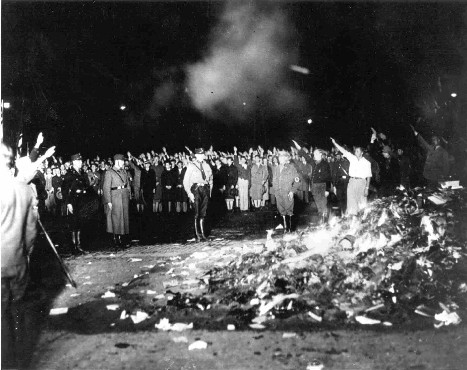History of Censorship
and Classification in Australia
Throughout
history, Australia has maintained a standing on censorship, and there has been
many acts and regulations, and types of ways that materials have been
classified or banned throughout history. These include but not limited to:
1901 - The Department of Trade and Customs received the
rights to prohibit the import of indecent, blasphemous or obscene works.
1967 - The National Literature Board of review was
established, they had the responsibility of reviewing books that they deemed
unsuitable for release in Australia.
1974 - The Commonwealth and all states except for Queensland
agreed that the Commonwealth would have the responsibility to classify
materials.
1983 - The Commonwealth developed the Classification of
Publications Ordinance 1983 (ACT)
1996 - The National Classification Scheme Commenced and a
Classification Review Board was developed.
Banned Books in
Australia
Throughout
Australian History there have been many books that have succumbed to becoming banned
in Australia. These have included:
The Room by Hubert Selby (Novel)
This novel
was banned by the National Literature Board of Review on the 3rd of
October, 1972. A particular censor described the book as having scenes that are
quite impossible to accept as social realism, it was classed as outright pornography.
Another censor also thought that civilisation could not exist if all types of
pornography are permitted freely. The book was later released on the 17th
of August, 1973.
The Inheritors by Harold Robbins
(Novel)
The novel was
banned by the national Literature Board of Review on the 12th of
August, 1970. The censors considered the materials to be unacceptable due to
the high sexual content of the United States edition, crudity and coarseness
which was considered to be unacceptable. It was based on characters living in
luxury, and jump in and out of bed with one another and in unlikely
combinations. The book was later released in August, 1973.
The Deal: A Novel by G. William
Marshall (Novel)
This novel
was banned by the National Literature Board of Review on the 16th of
October, 1968. It was considered that that author has attempted to outdo all
others, by focussing on the descriptions of copulation and physical violence.
It was thought that these details were unnecessary for a literary or dramatic
reasons. This edition as well as others were later released on the 27th
of July, 1973.
Reflection of Research:
I experienced
some difficulty on this particular blog post. I was initially searching for
history of book burning events, but was unable to find real valuable and
reliable information to refer to. There were events that were suggested to have
happen, therefore I decided to not use this material as they were not reputible source for my research, I continued looking as began to find information relating to more of the censorship
side of Australian history, and found some good and new resources to look at
for information.
I used general search engine techniques to get me started, and
then found valuable government sites and a literature database that I accessed
through the Swinburne Library databases. For my next blog post I am going to
look at and try to determine if possible how some events of book burning or
censorship in the past have related to determine rules and regulations in the future.
References:
Classification Website 2012, Australian Government, viewed
29 April 2012, <http://www.classification.gov.au/Pages/default.aspx>.
Banned in Australia 2012, Australian Literature Resource,
viewed 29 April 2012, < http://www.austlit.edu.au.ezproxy.lib.swin.edu.au/specialistDatasets/Banned>.
Lyons, Martyn
2011, Books a living history, Thames
& Hudson, London.
History of censorship and
classification in Australia
2012, Parliament of Australia, viewed 29 April 2012, < http://www.aph.gov.au/Parliamentary_Business/Committees/Senate_Committees?url=legcon_ctte/classification_board/report/c02.htm>.
Banned Books Week 2011, Banned Books Week, viewed 3
April 2012, <http://www.bannedbooksweek.org/>.



